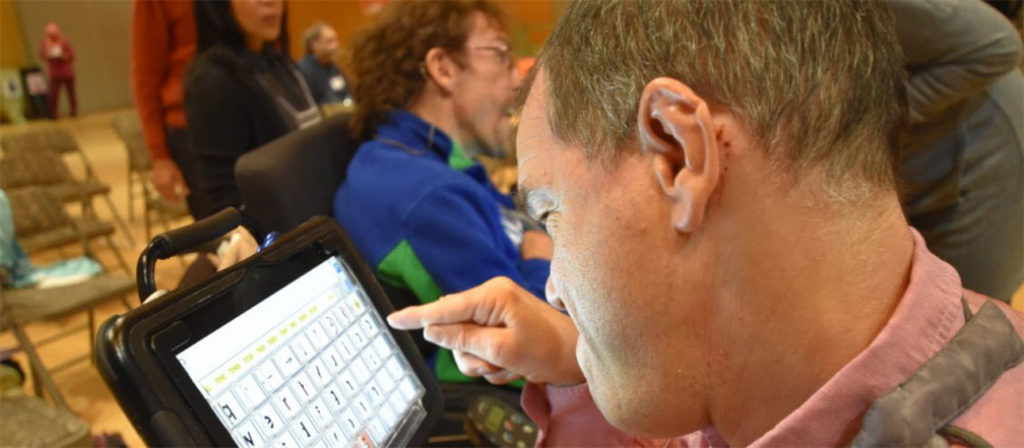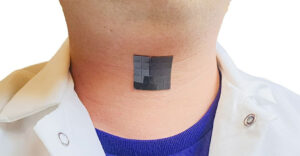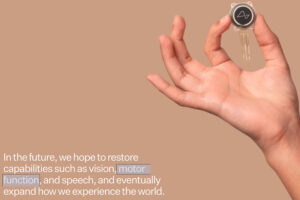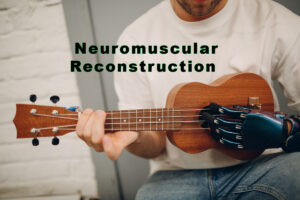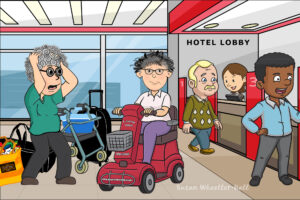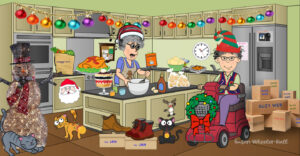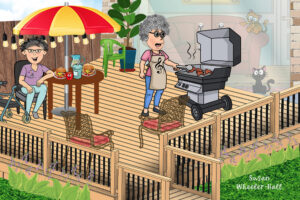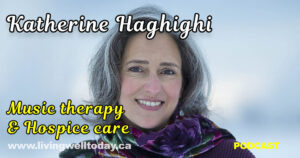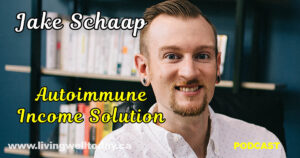Kilometers for Communication, a national public education, awareness, and fundraising campaign for AAC. Striving to empower the voices and enhance the lives of people who have limited or no speech, and to make accessibility and inclusion a national priority.
Kilometers for Communication is a campaign designed to advocate for new policies that don’t act as barriers to people who are differently-abled. It’s about hearing and sharing stories to create change through engagement. It’s about increasing access to services, supports, and technology to enable all people to communicate.

There are an estimated 375,000 Canadians with limited or no speech. Many have medical conditions like cerebral palsy, MS or ALS, which prevent them from moving muscles in their mouths, which enable speech. Other individuals may have had strokes, or serious car accidents. Or they have autism, aphasia, throat or thyroid cancer, Alzheimer’s, dementia, or perhaps other conditions that are less common.
Kilometers for Communication is working to expand its grassroots network further and create an inter-provincial coalition to advocate with greater strength. Their website is a growing incubator of relevant resources and stories about life with AAC (augmentative and alternative communication – see below post for more information).
This organization began out of one family’s desire to bring about change through public awareness. Knowing change will not happen without action they designed a campaign that could not be ignored.
Skye Wattie, the twenty-year-older brother of Kerr (pronounced care) biked from May-August (2011) across Canada. Biking from B.C to Newfoundland Kerr often rode alongside his brother within a bike trailer, while their parents followed along in an RV.
Kerr, now twenty-six, is an artist, activist, and presenter who speaks with AAC about AAC. In his words, Kerr says, “I like to challenge people’s attitudes, assumptions, and vocabulary about individuals like myself who have exceptionalities because I want people to develop more understanding, awareness, and respect.”
To read through their website and blog is a journey you will definitely want to take, check it out HERE


Tune in to our interview with Gail Fisher-Taylor (Kerr’s and Skye’s mother) today at 1pm
About ACC – AAC systems are diverse: unaided communication uses no equipment and includes signing and body language, while aided approaches use external tools and range from pictures and communication boards to speech-generating devices. The symbols used in AAC include gestures, photographs, pictures, line drawings, letters, and words, which can be used alone or in combination. Body parts, pointers, adapted mice, or eye tracking can be used to select target symbols directly, and switch access scanning is often used for indirect selection. Message generation is generally much slower than spoken communication.

